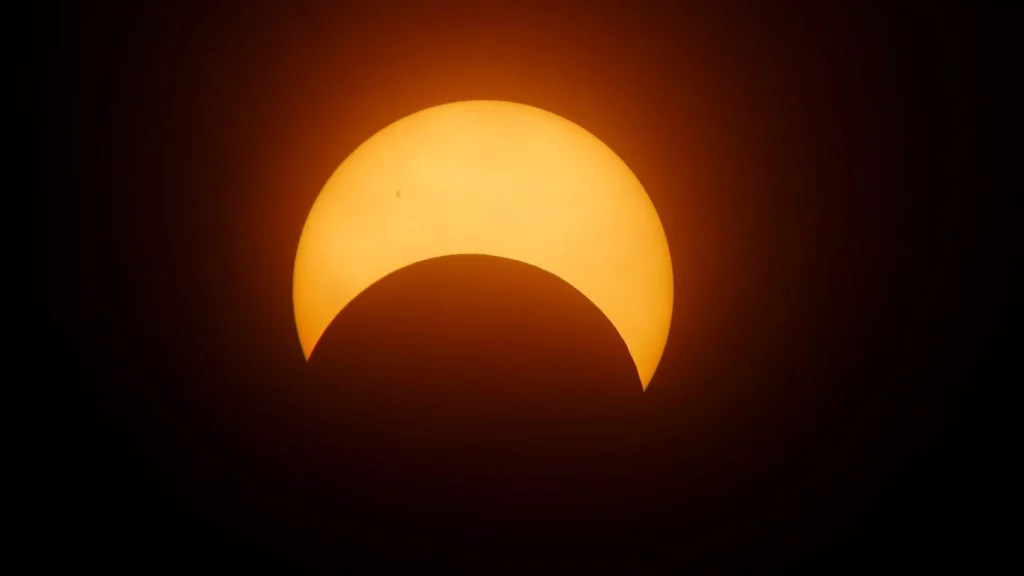Introduction
In the kaleidoscope of global cultures, the ancient and deeply spiritual heritage of Hinduism holds a unique perspective on cosmic phenomena. Foremost among these is the solar eclipse, or Surya Grahan, a celestial event imbued with profound significance. The alignment of the Sun, Moon, and Earth unfolds not merely as an astronomical occurrence but as a symbol of life’s cyclical nature, echoing Hinduism’s intricate cosmology.
The Mythology of Solar Eclipses
Hinduism interprets solar eclipses through the lens of mythical narratives and cosmological symbolism. The Puranas, ancient scriptures, narrate the tale of Rahu and Ketu, two shadow planets responsible for the solar eclipse. Rahu, the severed head of a demon, swallows the Sun causing the eclipse, and Ketu, the body, represents the end of the eclipse. This cosmic drama metaphorically suggests the perpetual struggle between light and darkness, good and evil, and knowledge and ignorance.

The Spiritual Aspect
Solar eclipses hold a spiritual aspect in Hinduism, signifying a moment of deep introspection and spiritual cleansing. It is believed that the potent energies released during a solar eclipse magnify the effects of meditation and prayer. As such, many devotees engage in spiritual practices like chanting mantras or meditating during the eclipse. This practice symbolizes the light of self-awareness dispelling the darkness of ignorance, as represented by the eclipse.
Solar Eclipses and Ritual Observances
Hindu tradition also prescribes specific ritualistic observances during a solar eclipse. Prior to the eclipse, households undergo a thorough cleaning to ward off negative energies. Fasting is commonly practised until the eclipse ends to detoxify both the body and mind. After the eclipse, charitable acts are encouraged, emphasizing the ethos of giving and compassion in Hindu philosophy.

Solar Eclipses in Vedic Astrology
Solar eclipses play a pivotal role in Vedic astrology or Jyotish. These cosmic events are considered significant omens, influencing the course of individual lives and world events. Astrologers often interpret the occurrence, duration, and visibility of a solar eclipse to provide insights into future happenings. This intricate connection between celestial mechanics and human destiny echoes Hinduism’s broader view of the interconnectedness of the cosmos.
The Cultural Influence of Solar Eclipses
Solar eclipses permeate various aspects of Hindu culture, from arts to literature. They serve as metaphors in poetry and narratives, symbolizing moments of profound transformation or revelation. Folk tales and regional songs also reference solar eclipses, highlighting the pervasive influence of these celestial events on the collective Hindu psyche.

Conclusion
In the vast tapestry of Hinduism, solar eclipses resonate as powerful symbols of change, introspection, and the eternal dance of cosmic forces. They provide a compelling lens to explore the rich mythological, spiritual, and cultural dimensions of this ancient tradition. The solar eclipse, in its fleeting yet profound spectacle, encapsulates the enigmatic allure of Hindu philosophy – an eternal quest for knowledge, balance, and transcendence.
